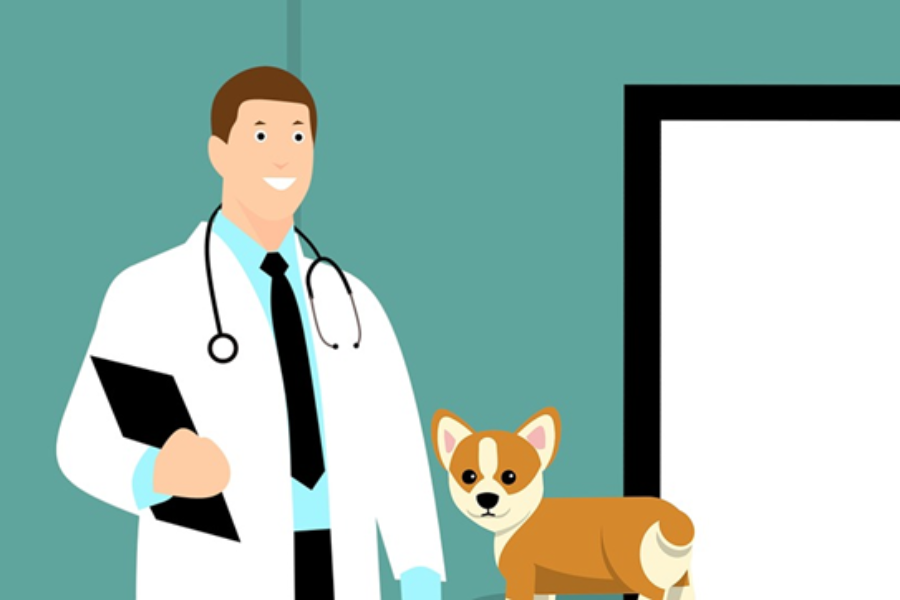Being a pet parent is not much different from parenting a human child. If you adopt a small kitten or puppy, you have to take care of them exactly like a human child. You get special formula milk, adjust their diet accordingly, handle their small bodies gently, teach them how to understand words and commands, and housebreak them.
Another big responsibility on your shoulders is to get your pets vaccinated on time. Cats and dogs need regular vaccine shot administered by a proper vet. Failing to do so can cost your pet their health later on in life.
Some people still question the need for vaccinating their pets but read on to find out what vaccines do for your precious pets, and why they are so important.
Types of Vaccinations
There are different types of vaccines for both cats and dogs, all specific to their distinct health needs. Most vaccinations are tailored to treat one or more diseases that can afflict your beloved cat or dog.
Vaccinations are classified into core vaccines and non-core vaccines. Core vaccines are against meant to prevent diseases such as rabies and distemper in dogs and cats because these diseases are almost always for the animals and are very hard or impossible to treat once the symptoms start showing. Thus, they are crucial for a pet’s long, healthy life.
Non-core vaccines offer protection against specific diseases, such as Bordetella in cats and Influenza in dogs. These diseases are not life-threatening and can be treated even if contracted at a later stage in life.
What Is the Right Time to Vaccinate Your Pet?
The timing and frequency of the vaccinations vary. Most vets recommend getting your kitten or pup their first core vaccination shots at the age of three months. Most require multiple doses of vaccines spread out over a period of time, ranging from a month to one or two years. A lot of the vaccinations require booster shots too. Boosters administer an extra dose of the prime vaccine and help seal the deal.
If you get your pets vaccinated while they are still young, you might need fewer vaccine shots for them in the future. Adults cats and dogs require more doses of the same vaccine to have the same effect on them, adding to the burden on your pocket.
Why Should You Vaccinate Your Pet?
Just like humans, pets can contract a lot of diseases, too, and vaccinations help them develop stronger immune systems, which make them better capable of fighting off infections and fatal diseases. They can even be beneficial in protecting you against diseases that can be transferred from animals to humans.
Many people argue that indoor pets do not need vaccinations because they are not exposed to the same kinds of conditions that outdoor cats and dogs are. And while there is no doubt that outdoor cats and dogs are more at risk, indoor pets can also come in contact with dangerous airborne diseases, or through contact with other cats and dogs. There are even some infections that vaccines can provide protection against.
Protects Your Pet from Diseases
Common pet diseases can include parvovirus, leukemia, rabies, and a variety of other diseases. Some diseases are specific to cats, while some only afflict dogs. Many of these diseases can prove to be fatal, and if they aren’t, they require expensive treatments at the very least.
Prevention is always better than cure. Vaccinating your pet can decrease the likelihood of your pet contracting these diseases and save them from unnecessary amounts of suffering, pain, and misery. A simple vaccine shot in the early years is all you need to protect yourself and your pet from rushed visits to the vet in the unfortunate event that they do catch a preventable illness later on in life.
Protects You and Your Family from Zoonotic Diseases
Zoonotic diseases are those that animals can pass onto humans as well. Diseases like rabies and leptospirosis are contagious to humans, too, and vaccinating our pets against zoonotic diseases not only protects your pet but you as well. Rabies is untreatable if symptoms appear in animals, and can cause neurological imbalances in humans if they are exposed to the disease.
Better Quality Of Life
The quality of your pet’s life is seriously enhanced if you get them vaccinated, as they will have a stronger immune system, which means that they won’t fall ill very often. They are stronger, happier, and healthier.
Saves Money That Would Otherwise Be Spent on Expensive Treatments
A little investment in vaccinations can save you thousands of dollars in treatments later on, and will also substantially extend the life of your pet. Treatments for dangerous diseases can involve costly visits to the vet, medications, and even surgery. Staying up-to-date on your pet’s vaccinations can save you the trouble and the money.
What Diseases Are Saving Your Pet from?
There are a number of ailments and infections that you’re saving your pet from when you vaccinate them – some fatal, some treatable. Here is a list of common illnesses that vaccinations protect your cats and dogs from. We’ve chosen cats and dogs because they are the most common pets that people like to keep.
Cats
- Rabies
- Feline Herpesvirus
- Feline Distemper
- Calicivirus
- Feline Leukemia
- Bordetella
Dogs
- Rabies
- Canine Distemper
- Parvovirus
- Adenovirus
- Parainfluenza
- Canine Influenza
- Kennel Cough
- Lyme Disease
It is your duty as a responsible pet parent to protect your babies from anything that might harm them or cause them pain. Vaccinating your pets according to your doctor’s recommendations is one of your primary obligations as their caretaker and owner.
Get an experienced and knowledgeable vet to administer your babies’ vaccines. The vets will guide you about what vaccines to get, and when to get booster shots. If you need recommendations for a good vet, Twissted Whiskers has a talented in-house vet that you can get an appointment with by calling 678-714-5477.


